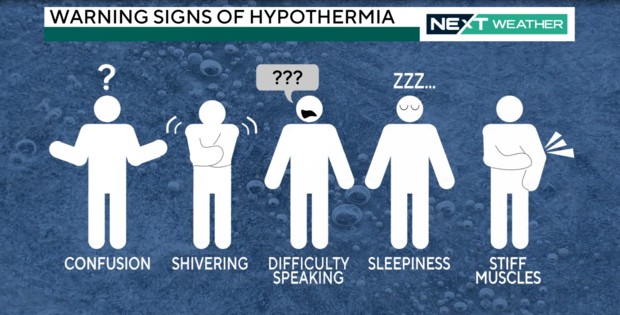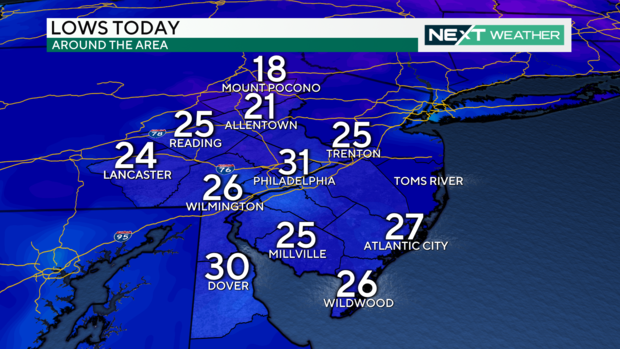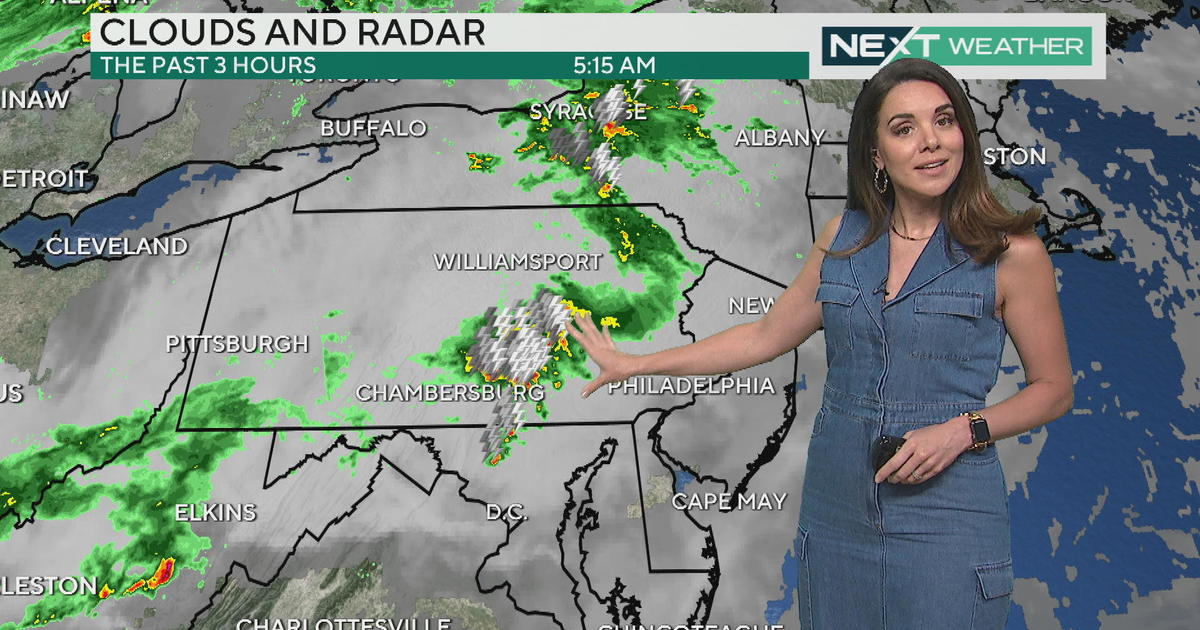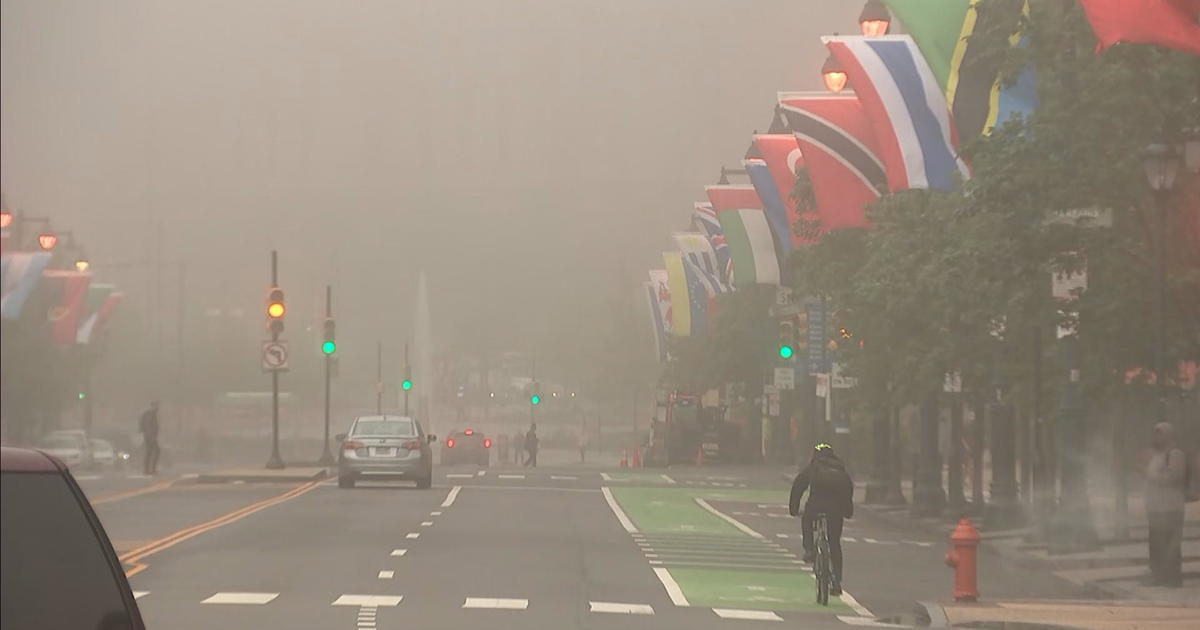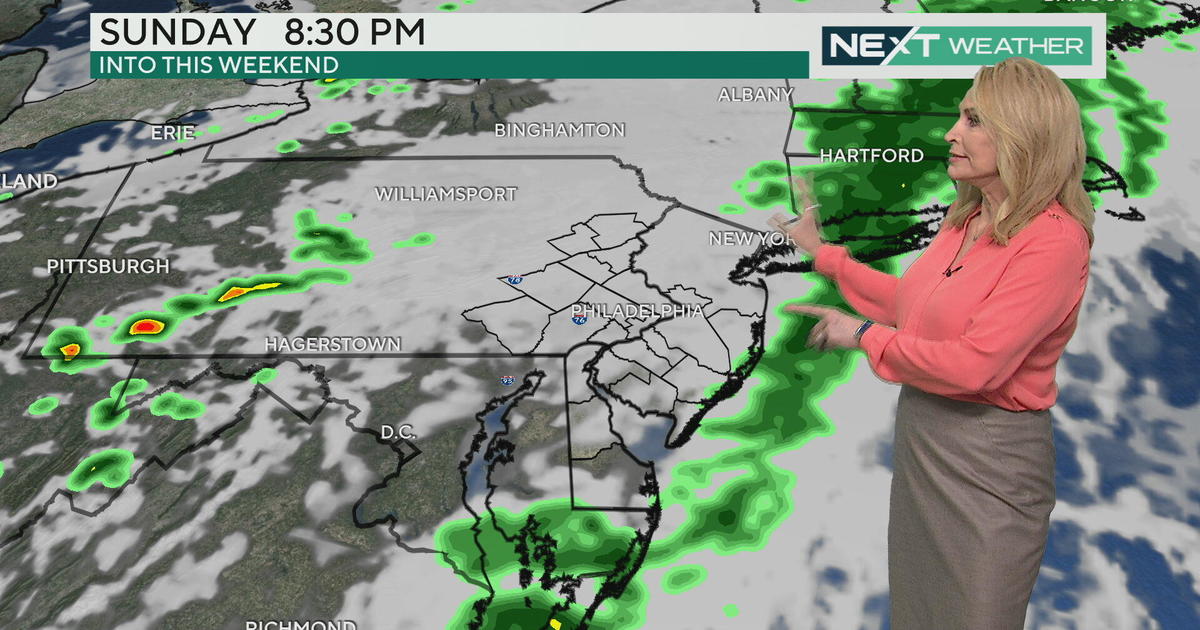NEXT Weather: What to know about hypothermia, frostbite as temps drop
PHILADELPHIA (CBS) -- Now that Philadelphia has experienced its first sub-freezing temperature (31° Monday morning), we'll start to see more and more of this in the coming weeks and months. And while the end of this week may bring us highs well into the 60s, that won't be the norm moving forward.
That up-and-down pattern may impact your actual perception of how it'll feel, and what to wear — and that could be dangerous.
After all, when we're experiencing above-average highs scattered around in November, who wants to lug out that heavy coat? While many of us may be guilty of that (including yours truly), leaving yourself exposed to the elements for too long can lead to frostbite and hypothermia.
Let's talk about what to look for:
Frostbite
In simple terms, frostbite describes damage or injury to the skin caused by cold. It's mainly caused when the nerves, skin and blood vessels underneath the top layer of the skin freezes. Frostbite is found mainly on the smaller exposed extremities of the skin like ears, nose, fingers and toes. The general rule is: that the colder the outdoor temperature, the quicker the frostbite "attacks."
Even with temperatures in the low 30s, frostbite can start with those exposed areas turning red. Once frostbite begins, the skin can turn waxy, grey and appear firm. It'll also start to feel numb. If any of this happens, immediately take action:
- Get inside, and gently put warm, not hot water on the areas affected
- If water isn't available, warm those areas up using body heat or warm blankets or clothing
- Do NOT use candles, fireplaces, or other fire-based heat sources to warm frostbitten areas; the numbness may mask pain, making burns easy
When in doubt, seek out a doctor. It's never a good idea to make a diagnosis without a professional looking at it.
Hypothermia
In the colder temperatures, your body loses heat faster than it can produce it. When this happens, hypothermia sets in. What makes it particularly dangerous, is that the loss of body heat can affect signals to the brain, causing the person to not think clearly, or realize what is actually happening.
And while most of us associate hypothermia with frigidly cold temperatures, it can actually set in with highs in the 40s, or from being submerged in water, rain or even sweat.
Signs of hypothermia include shivering, exhaustion, confusion, slurred speech and drowsiness.
Here's what to do if you think you or someone you know is developing hypothermia:
- Immediately move inside to a warm place
- Remove wet or cold clothing
- Warm the center of the body and the head (warm blankets or sheets in-between any heat sources)
- Immediate medical attention, especially if it's severe (in the most severe cases, a person becomes unconscious)
Bottom line: while we're in for a bit of a rollercoaster ride with temperatures over the next few weeks, cold-related dangers are here. Keep the coats and jackets (and accessories) close, and make sure to keep the ever-changing weather patterns at your fingertips with our FREE CBS News Philadelphia Weather App!
